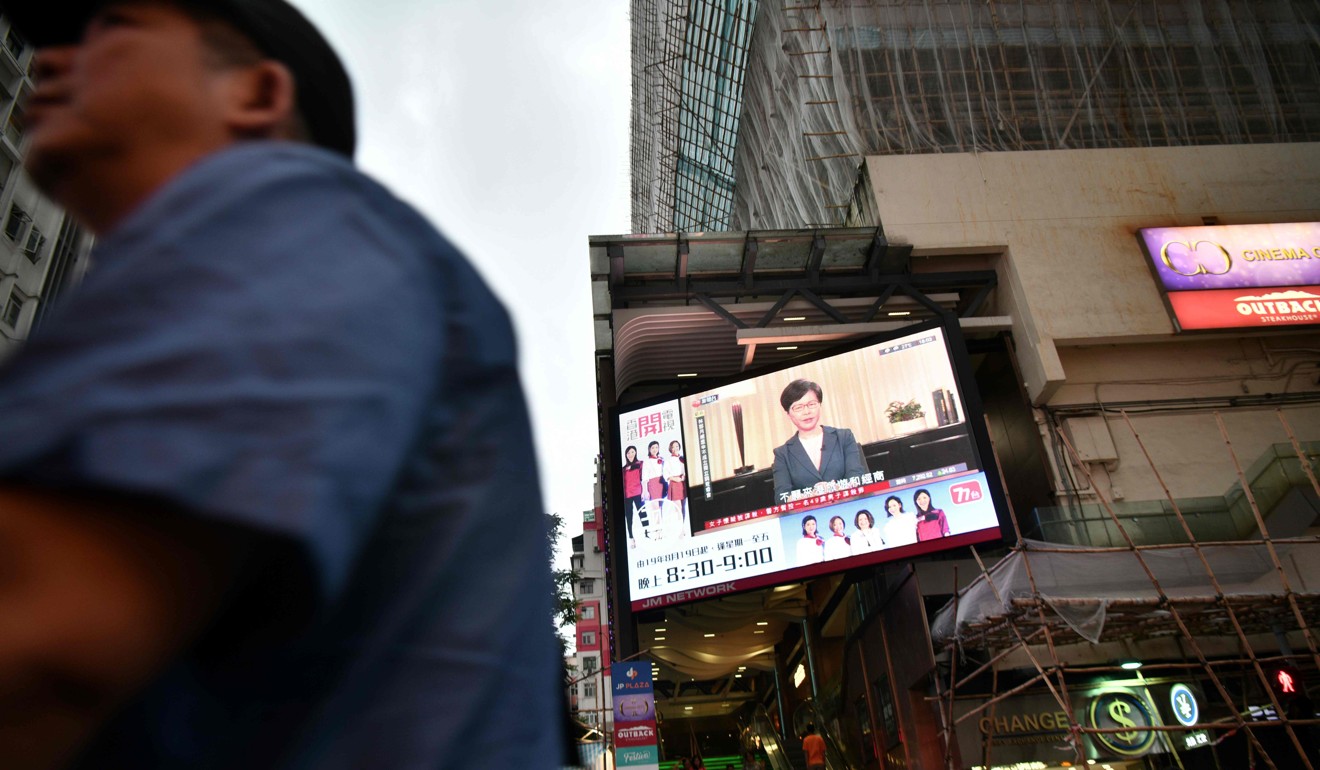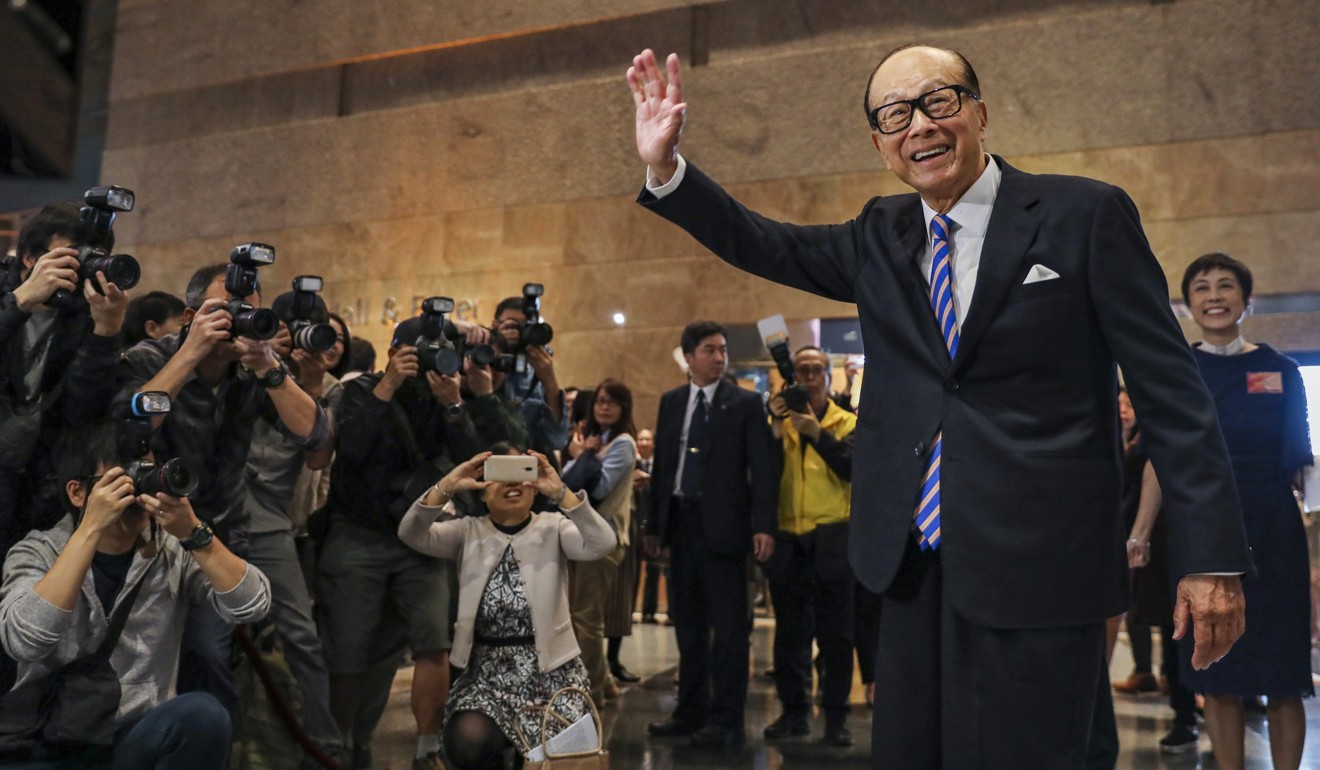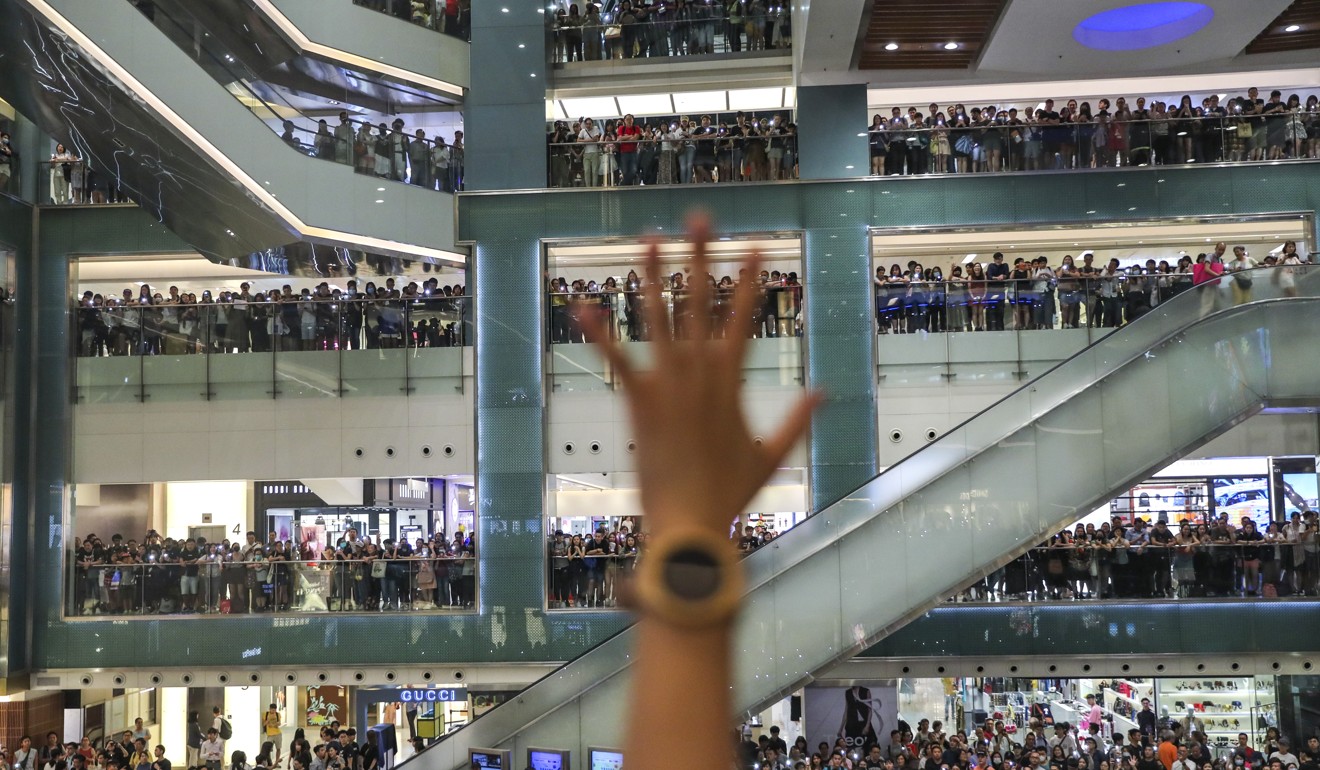
Hong Kong’s ‘revolution’? Not quite, but the days of property hegemony may be numbered
- Soaring property prices widely seen as driving force behind deep grievances and frustration among city’s youth
- And developers must understand times have changed and they face greater moral and political scrutiny

“Liberate Hong Kong! Revolution of our times!”
As popular as this slogan has become for the city’s protest movement against the government’s failed extradition bill, it has drawn fierce attacks from Beijing, which has questioned what context they are using the word “revolution” in and whether it represents a dangerous attempt to separate Hong Kong from China.
Whatever it may mean for individual protesters, they have vowed to fight on until Chief Executive Carrie Lam Cheng Yuet-ngor meets all five of their demands. Her U-turn in meeting one key demand, the formal withdrawal of the bill, does not go far enough for them.
But before their “revolution” can go anywhere further, a drastic kind of reform – if not quite a “revolution” – with a clear goal seems to be in the pipeline, ironically initiated by a call from Beijing for fairer redistribution of land, one of the city’s most precious resources.

Firing the starting pistol was a lengthy commentary by the official People’s Daily, which, together with other state media outlets, slammed Hong Kong developers for focusing only on earning every “last penny”.
They also urged the Lam administration to be proactive and decisive in making the best use of existing legal tools such as the Lands Resumption Ordinance to confront “vested interests”, so as to speed up affordable-home building and give young people hope.
Meanwhile, the city’s richest man, Li Ka-shing, has come under fire for his recent call for leniency towards young protesters, whom he described as “masters of our future”.
Intriguingly, it came in the form of a critical piece published in the official WeChat account of Beijing’s Central Political and Legal Affairs Commission. The article has raised many eyebrows, given that the commission is directly under the Communist Party’s Central Committee, headed by public security chief Guo Shengkun, a member of the powerful Politburo.
Li issued a statement expressing “deep regret” that his words had been misinterpreted, and stressing that “leniency” did not mean ignoring the law.
Misunderstanding or not, the reality is that the honeymoon between Beijing and the city’s tycoons, the Li family included, is long over.

The fact that cynical online comments posted on mainland social media platforms were allowed to remain was a rare departure from past politeness.
“How about [Li] cutting the price of all his properties by half to show leniency to young people?” one sarcastic comment read.
So what has soured over time?
For decades, the “small government, big market” laissez-faire principle has been religiously worshipped by successive administrations before and after the 1997 handover, until concerns were raised in recent years about the passiveness.
The “shareholders-first” creed has long been the legitimate justification for maximum profit-seeking, but such arguments are sounding less impressive to Beijing these days.
Whether the change in attitude was further prompted by the ongoing political fiasco or not, it comes at a time when the West, the US included, is also seeing heated debate on corporate social responsibility, after prominent American business group the Business Round Table issued a new statement emphasising stakeholders’ importance.

Soaring property prices have been widely seen as a major driving force behind the deep grievances and frustration among the city’s youth. That could explain why Beijing, through state media, has called for a fundamental “readjustment of short-term and long-term interests” warning that the city’s “finance-property bundled” model cannot work perpetually.
However, Beijing has to be mindful of using a double-edged sword when it declares war on big business here for “interests reallocation”. Under “one country, two systems”, Hong Kong, after all, is a capitalist city, although capitalism and social responsibility should not be mutually exclusive. Moreover, defiant protesters are not asking for only affordable housing either.
A “revolution”? Not quite, but it does signal the beginning of the end of the city’s notorious “property hegemony”.
Developers must understand that times have changed and they are under greater moral and political scrutiny. Local officials, including the city’s leader, have to overcome red tape and think out of the box in future policymaking.